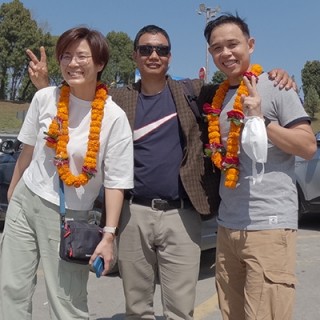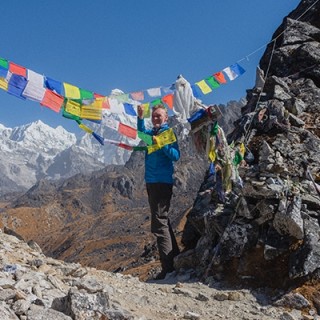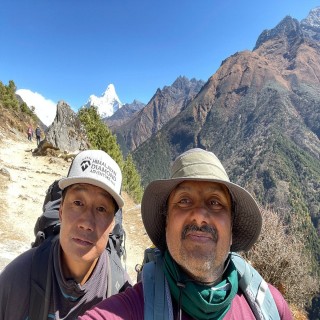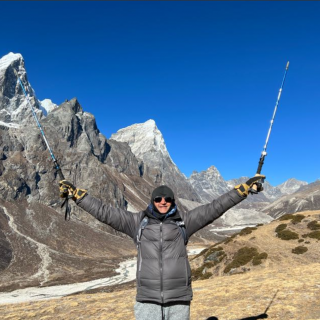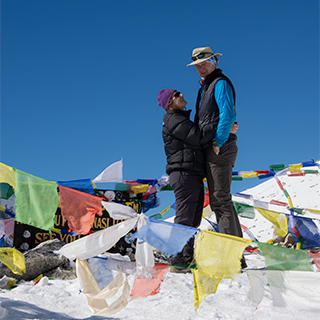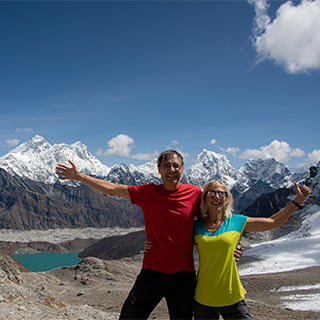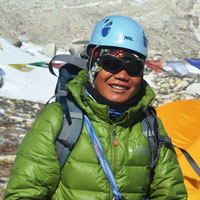01. Where Are The Best Places To Go Trekking In Nepal?
Nepal offers a variety of trekking destinations, including popular and isolated trails.
For a classic and renowned trek, the Everest and Annapurna regions are great options. Popular treks in these areas include the Everest Base Camp Trek, the Three Passes Trek in Everest, the Annapurna Base Camp Trek, Mardi Himal Trek, and the Annapurna Circuit Trek.
For a more isolated trekking experience, consider heading to regions such as Kanchenjunga, Tsum- Manaslu, Langtang Gosaikunda, Dolpo, Humla, or Upper Mustang. To determine the best trek for you, it's a good idea to discuss your requirements with a trusted travel agency.
02. How Expensive Is Trekking In Nepal?
The cost of trekking in Nepal varies based on several factors such as duration, service quality, group size, trekking region, and difficulty level. Trekking in Nepal can range from affordable to expensive.
On average, a trek in the Himalayas of Nepal may cost between US$75 to $250 per person per day, including permits, accommodation, food, transportation, guides, and porters. Trekking permits fees will vary depending on the trekking region and route. Accommodation in lodges/tea houses is typically less expensive than camping trek options.
The cost of food and drinks is relatively high in the Himalayas due to transportation difficulties and limited vegetation. Public transportation is a budget-friendly option, while private jeeps or cars are more expensive. Other expenses to consider include bonus for guides and porters, personal expenses, emergency funds, and shopping.
03. What Is The Best Time To Visit Nepal For Trekking?
The best season for trekking in Nepal is the Autumn and Spring seasons. The autumn season lasts from September to November, while the Spring season lasts from March to May. These are the best months for trekking in Nepal. The weather is clear during these seasons with blue skies, sunshine, spectacular mount views, blooming alpine flowers, and ideal temperature. The views of the Himalayan range around Nepal are awesome. The winter season from December to February has temperatures dropping to -18 degrees Celsius so it is not suitable for higher altitude trek.
04. What Happens If There Is An Emergency?
Our first priority is your safety and security during your stay in the mountains. If you experience an emergency, become ill, or lose your belongings while trekking or climbing in the mountains, it is important to inform your trekking guide or accompanying agency immediately. We will arrange for a helicopter to rescue you immediately and provide medical attention, or report the incident to the nearest police station to recover your lost belongings. Rest assured that we will take appropriate steps to ensure your safety and well-being in a timely manner.
05. What Essential Documents Do I Need To Bring With Me On Tour?
When traveling abroad for any purpose, it is important to carry the following documents with you:….
❖ Valid passport with at least 6 months validity and at least 2 blank visa pages
❖ Travel insurance policy document
❖ Photocopies of your passport's personal information page
❖ One or more recent passport-sized photos with a white background (1.5 inch x 1.5 inch)
❖ Completed and signed Nepal visa application form
❖ Proof of accommodation in Nepal (such as a hotel reservation or address)
❖ Valid return flight or travel ticket
❖ Proof of sufficient financial means, such as recent bank statements
❖ Mastercard, Visa, and some cash in USD
❖ Proof of payment of the Nepal visa fee
❖ To obtain a visa for Nepal, your passport must be valid for at least 6 months from the travel date and you must present either a completed COVID-19 vaccination certificate with QR code or a valid PCR test negative result taken within 72 hours prior to boarding
06. What Type Of Insurance Should I Get?
It is essential for foreign travelers to secure insurance coverage while trekking in Nepal. Trekking in Nepal, though generally safe, can pose physical challenges and potential hazards, especially at high altitudes. Altitude sickness is prevalent among trekkers, particularly foreign travelers who may not have acclimatized properly. Physical injuries can also occur on mountain trails. In emergency situations, foreign trekkers may need to be rescued by helicopter and transported to hospitals in Kathmandu, which can be costly if the traveler is not covered by insurance. It is advisable for travelers who trek with us to purchase a travel insurance package that covers potential medical issues, natural disasters, personal accidents, emergency helicopter evacuation, hospitalization, and loss or damage of personal belongings and trip cancellations. The minimum recommended coverage amount is USD 100,000. Many insurance companies offer travel insurance services online.
07. What Are Some Popular And Highly Rated Travel Insurance Companies?
We have received positive feedback from our previous travellers regarding the following travel insurance companies: [Company 1], [Company 2], [Company 3]
For Travelers from USA and CANADA........................
Online Global Health Insurance
Travelex
Insure My Trip.com (Online Insurance Aggregator)
Mondial Assistance
Access America
HCC Medical Insurance Services
Good Neighbor Insurance (International Health)
International Health
Insuremytrip dot com
MultiNational Underwriters
TIC Travel Insurance Coordinators Ltd
Travel Assist
TraveLite
For Travelers from England...................................
Specialty Group (UK) Limited
FirstAssist Services Limited
Harrison Beaumont
Buy cheap travel insurance
For Travellers from EUROPE and SLOVENIA...........................
Assistance CORIS
For Travellers from AUSTRALIA and NEW ZEALAND
Cover More Travel Insurance
CGU Insurance Limited
For Travellers from SOUTH AFRICA........................................
Travel insurance Consultants Pty. Ltd.
08. How Do You Stay Healthy During A Trek In Nepal?
To maintain good health during a trek in Nepal, it's important to maintain a balanced diet and proper hydration. Avoid consuming junk, stale, heavily spiced, and roasted foods, as well as meat, fish, eggs, and samosas. Instead, opt for fresh, locally prepared meals and ask your guide for recommendations. Drink only boiled, filtered, or bottled water, and check the expiration date of bottled drinks like Coca Cola and Sprite. Stay hydrated by drinking plenty of water or tea. Walk at a comfortable pace to prevent acute mountain sickness, and make sure to keep your body warm by wearing appropriate clothing.
09. How Far Will You Walk Every Day?
The average walking distance during a trek varies based on topography, trek length, and altitude. For example, the 7-day Annapurna Base Camp trek involves covering approximately 12 km/7.5 miles per day. On longer treks in remote areas, the daily distance may be greater. On average, a Himalayan trek may involve walking for 4 to 8 hours per day
10. Can You Trek Alone In Nepal?
It is possible to trek alone in Nepal, with the exception of some restricted areas where a guide is required for permit purposes. However, trekking alone in high mountain regions, particularly above 3500 meters, is not recommended. Nepal is a hilly country with steep ups and downs, and there is a risk of rock falls, getting lost, and suffering from altitude sickness. It is highly advised to have a guide or porter for assistance in case of any emergency, or for help with rescue or hospitalization.
11. Is Nepal Safe For Solo Female Travelers?
Nepal is a safe destination for solo female travelers, as the government takes measures to ensure their safety. However, trekking alone in high mountain regions, particularly above 3500 meters, is not recommended. The country's hilly terrain, with steep ups and downs, poses risks such as rock falls, getting lost, and altitude sickness. It is highly recommended to have a guide or porter for assistance in case of an emergency, or for help with rescue or hospitalization.
12. Why Should You Go Trekking In Nepal?
You should visit Nepal at least once in your life to witness its diversity and vibrant festivals. As the birthplace of Buddha and home to Mount Everest, the highest peak in the world, Nepal offers a chance to explore its diverse ethnic groups, cultures, religions, and traditions. With eight of the world's tallest 8,000-meter peaks and popular treks like the Everest Base Camp and Annapurna Base Camp, Nepal is a must-visit destination for nature and adventure enthusiasts.
13. Will You Have To Carry Your Own Stuff?
When trekking alone, you'll need to carry your own gear. Hiring a porter will allow them to carry heavy luggage, while you carry the rest. It's recommended to pack light to avoid excessive weight and minimize the risk of acute mountain sickness, allowing for a more enjoyable trek.
14. Can You Store Extra Baggage Or A Suitcase At The Hotel? Is There Any Cost?
Most of the hotels will not charge any extra cost for storing extra baggage or suitcase at the hotel. It is a good idea to do this if you will return back to the same route. Make sure that you don’t leave any jewelry, electronics or items of value in the baggage.
15. Is There Any Weight Limit For Domestic Flights?
For domestic flights in Nepal, the free baggage weight limit is usually 10-25 kgs with an additional luggage extra charge you per kg Nepalese rupees 100 to 125. The free cabin/handbag limit is around 5 kgs.
16. How Long Can I Stay in Nepal With a Tourist Visa?
A Nepal Tourist visa can be issued for 15, 30, or 90 days with the fees changing depending on the number of days you will remain in the country.
17. How Can I Extend a Nepal Visa?
You can extend your Nepal Visa at the headquarters of the Department of Immigration in Kathmandu. The office in Kathmandu is the only office of the Immigration Department which extends both tourist and non-tourist visas.
The Immigration Office in Pokhara is only authorized to extend tourist visas. https://www.immigration.gov.np/page/tourist-visa
You have to apply for an extension of your Nepal visa before it expires. If you apply afterward, you will have overstayed your visa, and you can be fined or even detained or arrested. You can extend a tourist visa for 15 days for a fee of USD 45. You have to pay an additional USD 3 for every day after that.

